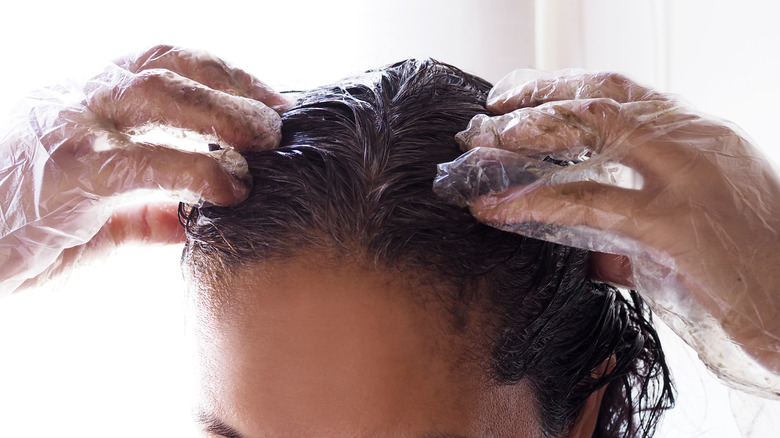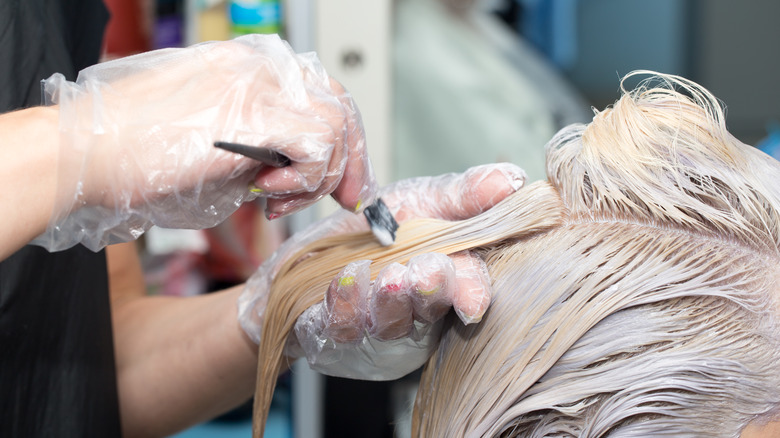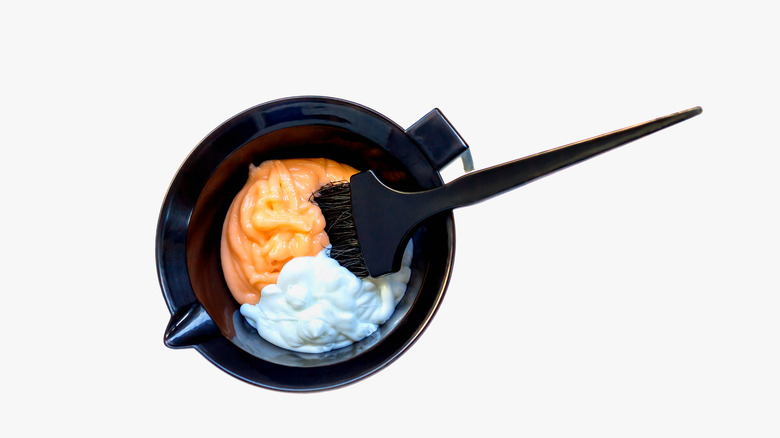You Should Stop Coloring Your Hair If This Happens To You
Changing our hair color feels almost addicting. It invokes a new attitude, triggers loads of compliments, and can inspire us to make even bigger changes in our lives. Even a non-drastic difference from a root touch-up has us leaving the salon with a little extra pep in our step and a new lease on life. Yes, coloring our hair is fun, flattering, and even daring at times. But unfortunately, getting your hair colored too often can leave some lasting damage that will sour your sweet new attitude. Here's what to look out for if you've been relying on the dye for too long.
First off, how often can we safely color our hair? It depends greatly on the current state of your hair health, but according to Hair Care Manual, don't expose your hair to the chemicals that are in hair dye more than once every four weeks.
A lighter shade could lead to more damage
It also depends on your color choice. If you have naturally dark tresses and want a lighter look, then you'll likely be exposing your locks to bleach. Trichologist Dr. David H. Kingsley, PhD, WTS, and an internationally-renowned hair-loss specialist, tells Bustle that, "All hair is healthy enough for bleaching, it's just a matter of treating it correctly and making sure the right products are used." If bleach is so temperamental, then why do salons and brave home hair colorists still use it? According to Healthline, bleach is one of the easiest, fastest ways to remove pigment from your hair strands and lighten their color. Using bleach may help you achieve that sought-after beach-blonde shade, but overexposure to this powerful chemical can leave you dealing with breakage, frizz, and dryness.
If bleach is not even a consideration and you prefer to stick to a more mild coloring process with permanent or semi permanent hair dye, you still need to be careful.
There are also health implications to consider
Dr. NDTV states that if you overexpose your hair to dye too often, then it can have a major impact on your health. Allergic reactions can cause the skin to itch and swell, so be especially careful when coloring your hair if you have any skin conditions such as eczema or psoriasis. In addition, those strong chemicals you inhale while the dye is being applied and setting into your hair can cause asthma. Hair dyes often contain chemicals called persulfates in them. And continuous exposure to these chemicals can cause coughing, lung inflammation and scarily enough, asthma attacks.
If you are experiencing any of these unwanted effects from coloring your hair, don't stress. There are ways that you can nurse your locks back to healthier days. The Sun recommends: weekly trims, switching to sulfate free shampoos, staying hydrated, and ditching the heat appliances. And as hard as it may be, avoid another color treatment to try and cover up the damage. It may mask some of the worst breakage, but it doesn't help in the hair repair process. And if you have experienced any skin irritation or asthma-related symptoms while coloring your hair, then it might be best to ditch the color all together and rock the always-beautiful, more-natural look.



